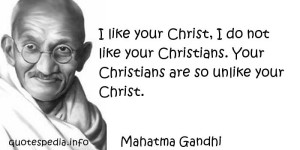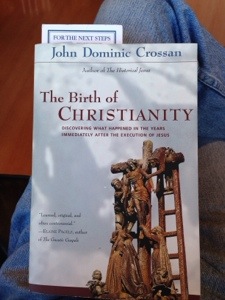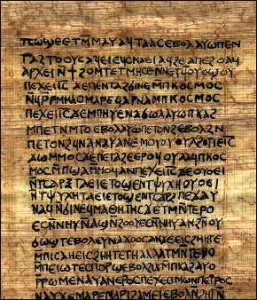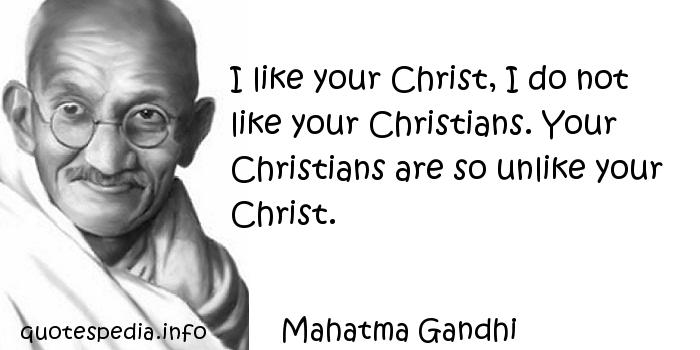Since the fall of 2013, I’ve gotten back into reading books again, which has been wonderful. Growing up, I was a voracious reader, to the point that the entire world around me seemed to disappear while reading. People would have conversations with me, and I’d have zero recollection that they were even there. While I didn’t know it at the time, apparently that is a “symptom” of being ADD called hyperfocusing, in which a person with ADD has some specific activities on which s/he can concentrate so absolutely, it’s as if nothing else exists. At times it can be good, but given my proclivity for reading during school classes, not always. 🙂 Anyway, since I’m back to reading, and have quite a long list of recommended books on my nightstand, I’ll be doing my own reviews of them as I go along, in case anyone wants to know what I think about them. If not, oh well – it’s a good way for me to crystallize my thoughts and understandings gained from the books.
The Birth of Christianity by John Dominic Crossan (1998)

Interestingly, although I left Christianity (and all organized religion) many years ago, and I do not claim Jesus Christ as the Lord or Saviour of the world in any way, the fundamental message of Christ has always held true for me, as it echoes the fundamental message of virtually all major world religions and philosophies. The religion known as Christianity, however, seems to me to have long ago lost that message, but focused far more on dogma and rules and stuff like that. I’ve discussed my beliefs about my personal beliefs [updated link] previously if you’d like to know more.
This quote by Mahatma Gandhi summarizes my feelings on the subject rather well, to tell the truth. But when reading the Bible, even when reading just the New Testament (and yes, for anyone wondering, I’ve read the Bible cover-to-cover twice, along with all the Bible studies, etc. that included partial readings many times over), it is obvious that there are contradictions and differences. Quite frankly, if you think there aren’t, you haven’t really studied the Bible and done a real comparative analysis. So what in the Bible is really from Jesus, what is from any of the Apostles, or from Paul, or the community of early Christian Jews, or early Jewish Christians, early Christian pagans, etc? How did the Bible come to be as it is? I’ve been fascinated by this question for years and have read rather extensively on the subject, but until The Birth of Christianity, I was always left with more questions than answers. Interestingly, I had purchased this book at least 10 years ago, but had never read it. Nor do I know what really prompted me to start reading it now, but having just finished it, I am glad I took the time. I’ll need to read it again one day, as there is so much information there to digest, it’s rather overwhelming, but wow, did I learn a lot!
Not Without Controversy and Debate
 Obviously, not all Christians believe the same things about the Bible. The Roman Catholic Church, for example, has never really held the Bible to be literally true, and that Tradition is just as important as the Bible in understanding God, Jesus, and faith. On the flip side, fundamentalist Christians, predominantly in the USA, believe that the Bible is to be read literally, as the 100% accurate Word of God. I’ll come right out and say, I think that’s one of the stupidest ideas ever. Fred Clark, who writes the Slacktivist blog on Patheos.com, wrote an excellent rebuttal of that idea here.
Obviously, not all Christians believe the same things about the Bible. The Roman Catholic Church, for example, has never really held the Bible to be literally true, and that Tradition is just as important as the Bible in understanding God, Jesus, and faith. On the flip side, fundamentalist Christians, predominantly in the USA, believe that the Bible is to be read literally, as the 100% accurate Word of God. I’ll come right out and say, I think that’s one of the stupidest ideas ever. Fred Clark, who writes the Slacktivist blog on Patheos.com, wrote an excellent rebuttal of that idea here.
When it comes to understanding how the Bible came to BE the Bible, however, how does one go about that? What must one study to understand the development of each book in the Bible, from the initial oral stories about Jesus Christ’s life, death, and resurrection, to their shift into written form, etc? What influences were at play in the communities of those early believers? Economics? History? Politics? How do we know, or CAN we know, how everything melded into the Bible stories?
So many Christians prefer to stay ignorant about the Bible, somehow preferring to believe that it was simply written by God, through men, and it sprang into existence “as-is,” and put no more thought into it. Again, my contention is that ignorant faith is pretty useless faith, because if you don’t really understand what you believe, how do you believe it? But once historians began to study the Bible, it became obvious that such is not the case, and the written texts that are studied by serious Biblical scholars easily bear that out. Even within the scholarly community, however, there can be significant disagreement, and there are certainly those who vigorously disagree with some, or even all, of Crossan’s work.
Biblical Scholarship Must Be Cross-Disciplinary
 There are many books about the Bible written for both the lay public, and I have read many of them. Crossan, however, outdoes every single one that I’ve read. Make no mistake – this is not an easy book to read. Despite my study of Christianity over many years, and despite my graduate-level education, and my passion for reading many topics (philosophy, cosmology, climatology, physics, theology, and more), I haven’t had to look up so many words in the dictionary in a long time!
There are many books about the Bible written for both the lay public, and I have read many of them. Crossan, however, outdoes every single one that I’ve read. Make no mistake – this is not an easy book to read. Despite my study of Christianity over many years, and despite my graduate-level education, and my passion for reading many topics (philosophy, cosmology, climatology, physics, theology, and more), I haven’t had to look up so many words in the dictionary in a long time!
Essentially, this book is a highly detailed, cross-disciplinary study that looks at the years leading up to, during, and immediately following the life, death, and resurrection of Christ. In a strictly organized, amazingly well-referenced, and systematic fashion, Crossan looks in-depth at the following topics (a partial listing only):
- The macro- and microeconomic situation found in Palestine during the commercial expansion of the Roman Empire;
- How the economics of the Roman empire conflicted powerfully with the Jewish God of justice and righteousness;
- Judaism at the time of Jesus;
- How oral traditions function, and whether or not they substantiate the oft-cited claim that “…illiterate societies compensated by being better at transferring oral traditions without error….” and making a solid conclusion that such a claim is radically unjustified;
- The textual record available, with a critical look at all both long-standing and new research;
- The most detailed discussion of both the differences and similarities of the intracanonical and extracanonical gospels, including the Didache, Q Gospel, Gospel of Peter, and Gospel of Thomas that I have ever seen, with thorough cross-referencing available in the indices;
- The role of women in the early church and the lament tradition;
- The interactions of communities and itinerant preachers in the earliest records of Christian/Jewish communities;
- and more!
Given the book is close to 600 pages, not counting the Bibliography or Index or Appendix, I’m not going to cover everything in that list; if you really want to know, you’ll have to read it yourself. 🙂
My Conclusion: Superb Book & Worth Reading
Whether you agree with Crossan’s methodology, starting premises, selection of sources, etc. or not, this book is IMO a must-read for anyone serious about understanding the Bible and what it teaches. Whether you like it or not, Crossan is generally acknowledged to be one of the world’s foremost experts on the historical Jesus and the beginnings of the Christian faith, and this book is clear evidence of why:
- Clear and rigorous methodology
- Excellent cross-disciplinary study
- Open and honest – he clearly acknowledges numerous times that, if certain of his starting premises are wrong, then his entire argument falls apart
- He describes his differences with other scholars in clear and respectful terms, addressing their disagreements with scholarship and not personal attacks
- DETAILED!
In other words, if you really want to disagree with Crossan, you’d better be well-prepared with a massive amount of evidence to support your disagreements. I thoroughly enjoyed reading this book and learned a tremendous amount about the development of Christianity. Because I’ve promised a couple friends, especially Mark Metternich, that I would read at least 1 book that disagrees with Crossan significantly, I will be posting a review of that at some point down the road. However, I have 4 other books already waiting, so it will be a little bit.
Next up: Thinking, Fast and Slow by Daniel Kahneman
Respectful comments and disagreements are always welcome; anything rude, abusive, etc. will be edited at my discretion.
